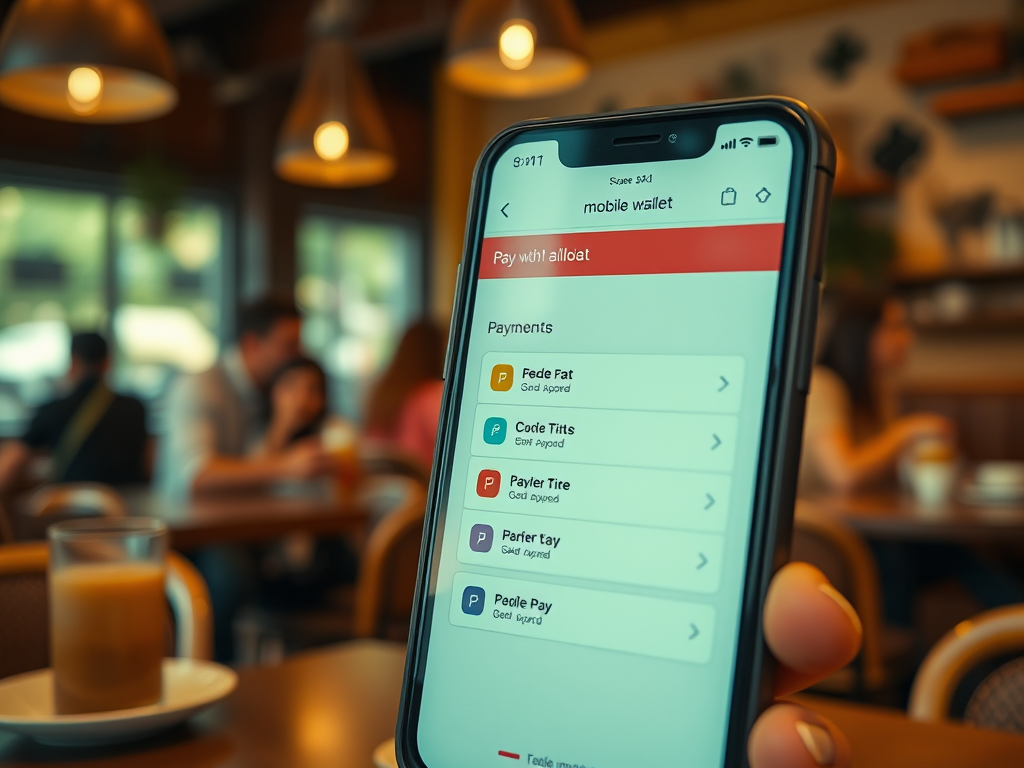As we navigate through the digital age, mobile marketing continues to evolve at a breathtaking pace. By 2025, marketers will have the challenge and opportunity of leveraging cutting-edge technologies and trends to engage consumers effectively. Understanding how to adapt to these trends is not just an option; it is imperative for brands keen on capturing their audience’s attention. This article delves deep into the innovative mobile marketing tactics set to shape the future, focusing on technology like 5G, AI, voice search, and more. With insights into these strategies, marketers will be better equipped to optimize their campaigns and enhance consumer engagement. Explore these transformative tactics to ensure your brand remains relevant and competitive in the mobile-first world.
The Rise of 5G and Its Impact on Mobile Marketing

The advent of 5G technology signifies a monumental shift for mobile marketing as it brings unprecedented data speeds and connectivity. With faster download and upload times, brands can create richer and more interactive experiences for their users. For instance, video content will load almost instantly, enabling companies to deploy captivating advertisements without delay. Also, augmented reality and live streaming will become increasingly viable, creating an immersive experience that combines storytelling with real-time interaction. This not only enhances user experience but also allows marketing teams to gather more data on consumer engagement. Ultimately, 5G represents a new frontier in mobile marketing strategies, greatly influencing how content is delivered and experienced.
Enhanced Personalization Through AI

Artificial Intelligence is no longer just a buzzword; it is a vital component of modern marketing strategies. By 2025, AI will enable brands to create tailored experiences for consumers, reflecting their preferences and behaviors. Marketing automation tools will analyze vast amounts of data, leading to hyper-personalized content that resonates deeply with individual users. This could encompass everything from personalized email campaigns to targeted advertisements displayed on mobile devices. The use of AI will not only enhance engagement but will also drive conversions by ensuring the right message reaches the right audience at the right time.
To harness the power of AI effectively, marketers must focus on collecting and analyzing user data. Some critical data points to monitor include:
- Search Behavior: Understanding what keywords users search for on their mobile devices.
- User Engagement: Analyzing how long users interact with specific content.
- Purchase History: Tracking previous purchases to recommend related products.
- Location Data: Using geolocation to tailor offers and advertisements.
By focusing on these metrics, marketers can craft campaigns that speak directly to their audiences and foster stronger relationships.
Voice Search and Conversational Marketing
With the rise of voice-activated devices, voice search is becoming an integral part of the mobile experience. By 2025, it is anticipated that a significant portion of searches will utilize voice commands, prompting brands to re-evaluate their SEO strategies. Not only does this shift require websites to focus on natural language processing, but it also encourages marketers to create content that is conversational in tone. Implementing a conversational approach can significantly improve customer interactions and brand loyalty. As a result, businesses will need to integrate voice search optimization into their overall mobile marketing strategies.
To effectively reach users through voice search, here are some optimization strategies:
- Utilize natural language: Focus on long-tail keywords that reflect how users phrase their queries.
- Optimize for local search: Ensure business information is updated for local voice searches.
- Create FAQ sections: Address common queries related to your products or services directly.
- Use structured data: Implement schema markup to help search engines understand your content better.
Adopting these techniques will position brands favorably in the new voice-activated landscape.
The Growth of Augmented Reality (AR)
Augmented Reality is set to transform the way consumers interact with products and brands. Particularly in retail, AR can bridge the gap between online and offline shopping experiences, making it easier for consumers to visualize products before purchasing. Think virtual dressing rooms or product demos that allow customers to test items in real-time through their mobile devices. By creating engaging experiences, brands can significantly enhance customer satisfaction and encourage repeat purchases. As AR technology becomes more accessible, its incorporation into mobile marketing strategies will be a game-changer for many companies.
| Technology | Impact on Marketing | Example Use Case |
|---|---|---|
| 5G | Enhances speed and connects devices | Real-time engagement through live streaming |
| AI | Delivers personalized experiences | Tailored ads based on user behavior |
| Voice Search | Transforms content consumption | Conversational SEO strategies |
| AR | Bridges online & offline experiences | Virtual try-ons for clothing |
Mobile Wallets and Payment Solutions
As technology progresses, mobile wallets are becoming a staple in consumer transactions. With the convenience they offer, more customers are opting for mobile payment solutions over traditional cash or card transactions. By 2025, brands must consider integrating mobile wallets into their marketing strategies as users will increasingly expect seamless payment experiences. This can also lead to increased customer loyalty, as convenient checkout processes often influence purchasing decisions. As such, offering rewards and promotions directly through mobile wallets can be a highly effective tactic for brands seeking to enhance customer retention.
The Role of Influencer Marketing
In the realm of mobile marketing, influencer partnerships are gaining traction as they provide authenticity and reach. Influencers engage their audiences primarily via mobile platforms, allowing brands to leverage these networks effectively. By 2025, collaborating with the right influencers can help brands access niche markets and drive sales. Furthermore, influencers can create relatable content that resonates more deeply with potential customers, ultimately leading to increased conversions. As consumers become more discerning regarding advertisements, establishing genuine connections through influencers will become imperative for brands.
Incorporating User-Generated Content
User-generated content (UGC) represents a golden opportunity for brands to engage their audience. By tapping into the creativity of their customers, brands can build a more authentic image. UGC not only helps in fostering community but also builds immense trust, as consumers are more likely to trust reviews and images from fellow customers than from brands. Encouraging customers to share their experiences creates a sense of community around a brand, driving loyalty and advocacy. As companies move towards 2025, weaving UGC into mobile marketing strategies will be crucial in enhancing consumer relations and authenticity.
Conclusion
As we navigate the fast-changing realm of mobile marketing, the importance of innovating and adapting cannot be overstated. By 2025, brands that harness these mobile marketing tactics—including the power of 5G, AI, voice search, augmented reality, and mobile wallets—will distinguish themselves in a crowded landscape. Embracing these technologies will enhance customer engagement and drive conversions. To stay competitive, organizations must embrace the future with an agile mindset, ready to pivot and evolve alongside technological advancements. Mobilizing these insights will ensure brands not only keep pace but thrive in the dynamic world of mobile marketing.
Frequently Asked Questions
- What are the key mobile marketing trends for 2025? The key trends include the rise of 5G, enhanced personalization through AI, the use of voice search, augmented reality, and the increase in mobile wallet solutions.
- How can brands leverage AI for mobile marketing? Brands can use AI to gather insights about customer behavior and preferences, resulting in highly personalized marketing strategies.
- Why is voice search important for mobile marketing? Voice search is increasingly popular, and optimizing for it helps brands reach consumers who prefer hands-free interactions.
- What is user-generated content, and why is it important? User-generated content is any content created by unpaid contributors, typically customers. It’s important because it builds trust and authenticity around a brand.
- How do mobile wallets change customer interactions? Mobile wallets streamline the transaction process, making it easier for customers to make purchases and enabling brands to offer targeted promotions.





